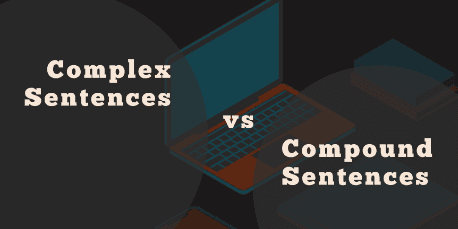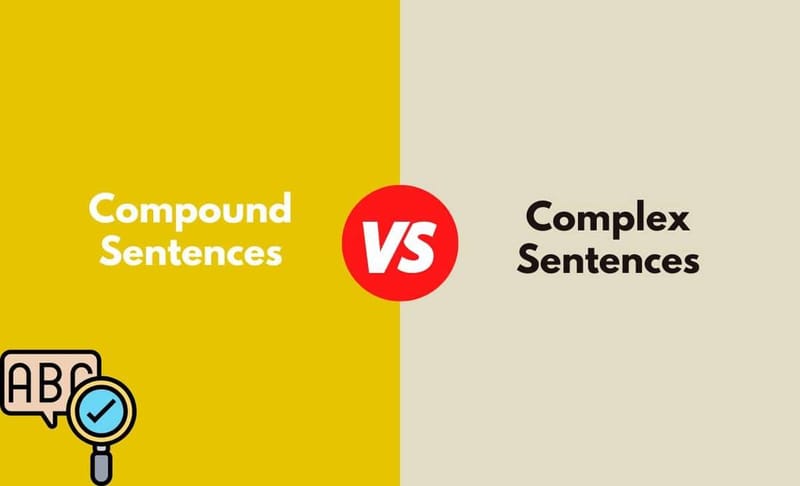Complex vs Compound Sentences : The Ultimate Guide
Contents

Imagine you're seated across a panel of interviewers. You know what you want to say, but somehow, the words just don't flow as well as they do in your native language. You're struggling to construct complex and compound sentences in English - a challenge many non-native speakers in India face regularly.
Confusion due to sentence structure can lead to communication problems. This makes it essential for learners to grasp the difference between complex vs compound sentences. These sentence types form the foundation of fluent English. They help you express your thoughts and ideas comprehensively.
In this article, we'll look at complex vs compound sentences with practical examples. We'll also provide actionable tips and resources that will help you master these grammar essentials, thereby enhancing your fluency and confidence in spoken English. Whether it's acing that interview or presenting your ideas confidently at work - mastering these structures can make a world of difference. So let's dive right in!
Understanding Complex vs Compound Sentences
Let's begin by defining complex sentences. A complex sentence contains one independent clause (a complete thought) and one or more dependent clauses (phrases that can't stand alone as a sentence). For instance, look at the sentence “She went to the market after she finished her work". Here, ‘She went to the market’ is an independent clause, while 'after she finished her work' is a dependent clause.
In complex sentences, conjunctions like 'after', 'although', 'as', 'because', 'before', 'if', 'since', 'unless' and 'while' are often used for joining clauses. For example, in the sentence "I will visit Taj Mahal if I go to Agra", 'if' is the conjunction linking two clauses.
On the other hand, a compound sentence is distinct as it contains at least two independent clauses joined by coordinating conjunctions like ‘and’, ‘but’, ‘or’, ‘so’ and ‘yet’. For instance, "Ravi likes cricket, but his brother prefers football." Both "Ravi likes cricket" and "his brother prefers football" could be complete sentences but are connected by 'but'.
Understanding the differences between these sentence types will help you express your thoughts more clearly. Visit Sentences - Grammar - Cambridge Dictionary for a more detailed understanding.
Complex Vs Compound Sentences: A Detailed Comparison Table

Let's look at a comparison of these two types of sentences.
Complex Sentence | Compound Sentence | |
Structure | Consists of an independent clause and at least one dependent clause. | Has two or more independent clauses typically combined with a coordinating conjunction. |
Usage | Used to express detailed thoughts, cause-effect relationships, conditionals, etc. | Used to join related thoughts or actions of equal importance. |
Punctuation | Generally, a comma is used when the dependent clause comes first in the sentence. | A comma may or may not be used before the coordinating conjunction. |
Examples | "Though she was late, she still made it to the meeting." "Since apples are out of stock, I’ll make an orange pie instead." Before you leave, please submit your progress report." | "I love idli, but my brother prefers dosa." "Kohli hit a century and India won the match." "We have completed the project report, so it’s ready for review." |
Practical Tips & Exercises to Master Complex vs Compound Sentences
Here are some tips to master complex and compound sentences:
1. Read extensively: Diversify your reading material. Newspapers, books, and blogs offer rich examples of complex vs compound sentences.
2. Practice writing: Write a journal or start blogging. It helps you experiment with sentence structures.
3. Watch movies: Hollywood movies have a lot of sentence variations. Check out this blog to know more: Does watching Hollywood movies improve English speaking skills?
4. Self-review: Review your writings or use language apps to check sentence structure.
Here are some exercises you can try doing:
Write five compound sentences about your favorite movie.
Read a newspaper article and identify ten complex sentences.
Transform simple sentences into compound ones.
Construct three complex sentences using conjunctions like 'although', 'since', and 'unless'.
With practice, you'll be able to use complex and compound sentences in English effortlessly! You can also check out this interesting conversation practice from Clapingo to see how different types of sentences can be used in daily conversations:
Boosting Confidence by Understanding Complex vs Compound Sentences
Familiarity with complex and compound sentences can significantly boost your confidence, both personally and professionally. Imagine being able to hold an engaging conversation at a conference or explaining a complicated process easily during a presentation. All this becomes possible when you master the art of using complex and compound sentences accurately.
Clapingo's personalized coaching sessions are designed to help non-native English speakers understand the usage of these sentence structures. With Clapingo, you'll learn from expert tutors who conduct classes in your native language. They will guide you through the complexities of these sentence types until they come to you naturally. You can explore more about improving your overall fluency through this detailed post on How to Improve English Speaking Fluency: 27 Simple Tips.
Summing Up
In this journey, we have looked at the mystery of complex vs compound sentences, illustrating various complex vs compound sentence examples. Remember, a compound sentence combines two independent clauses, while a complex sentence joins an independent clause with one or more dependent clauses.
Moreover, continuous practice is crucial in mastering these concepts and boosting your confidence in speaking English fluently. Every correct sentence you form and every conversation you lead sets you one step closer to your goal. Clapingo is here to help you navigate through these challenges with ease.
Never consider any hurdle as a setback but see it as a stepping stone to reach greater heights in your language journey. Keep learning!
FAQs
1. What's an easy way to distinguish between complex and compound sentences?
Look out for the clauses. Complex sentences contain a dependent clause while compound sentences contain two independent clauses. If the clauses make sense in isolation, the sentence is compound.
2. Can I use both complex and compound structures in a single sentence?
Yes! In fact, mixing sentence structures makes your spoken English more engaging and natural. For instance: "I love dosas because they are delicious, and I often eat them for breakfast."
3. How can mastering complex vs compound sentences help me?
Mastering these sentence types improves your English fluency and allows you to express ideas more clearly and confidently. It also helps you understand spoken English better in professional or academic contexts.
Comments
Your comment has been submitted